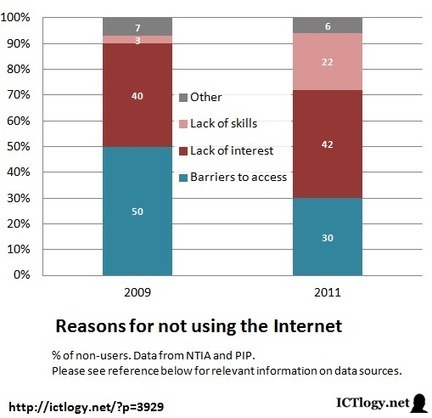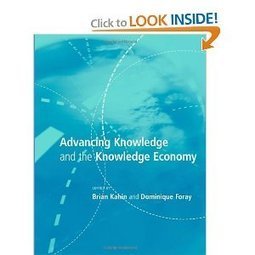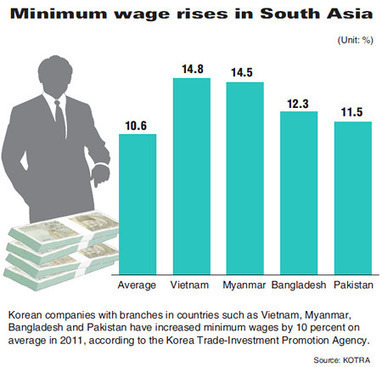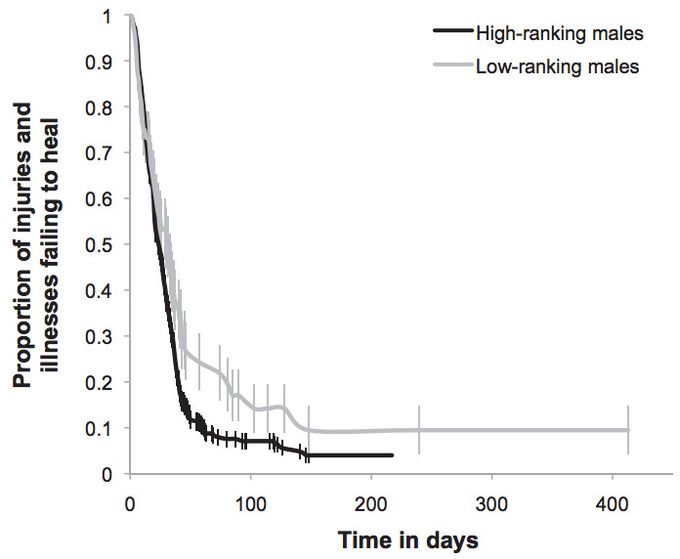|  |  |  |
|
| | Knowledge Economy | Scoop.it | | |
|
|
|
|
|
|  |  |  |
|
| |
|

The knowledge economy is a myth. This concept is based on the assumption the more knowledge we develop, the better we are able to establish visions, solve problems and issues.
Is this idea really new and effective?
As long as man exists, he has access to knowledge, creates new knowledge and is using knowledge for trading and business in order to make a living.

|
|
|
|
|
|
| |
|
|
|
|
|
|  |
|  |
|
| |
|

The knowledge economy is a myth. This concept is based on the assumption the more knowledge we develop, the better we are able to establish visions, solve problems and issues.
Is this idea really new and effective?
As long as man exists, he has access to knowledge, creates new knowledge and is using knowledge for trading and business in order to make a living.

|
|
|
|
|
|
| |
|
|
|
|
|
|  |  |  |
|
| |
|

Michel Foucault, The Order of Things -
"All knowledge is rooted in a life, a society, and a language that have a history; and it is in that very history that knowledge finds the element enabling it to communicate with other forms of life, other types of society, other significations: that is why historicism always implies a certain philosophy, or at least a certain methodology, of living comprehension (in the element of the Lebenswelt), of interhuman communication (against a background of social structures), and of hermeneutics (as the re-apprehension through the manifest meaning of the discourse of another meaning at once secondary and primary, that is, more hidden but also more fundamental)"
— (via augustuscarmichael)

|
|
|
|
|
|
| |
|
|
|
|
|
|  |  |  |
|
| |
|

Michel Foucault, The Order of Things -
"All knowledge is rooted in a life, a society, and a language that have a history; and it is in that very history that knowledge finds the element enabling it to communicate with other forms of life, other types of society, other significations: that is why historicism always implies a certain philosophy, or at least a certain methodology, of living comprehension (in the element of the Lebenswelt), of interhuman communication (against a background of social structures), and of hermeneutics (as the re-apprehension through the manifest meaning of the discourse of another meaning at once secondary and primary, that is, more hidden but also more fundamental)"
— (via augustuscarmichael)

|
|
|
|
|
|
| |
|
|
|
|
|
|  |  |  |
|
| |
|

Michel Foucault, The Order of Things -
"All knowledge is rooted in a life, a society, and a language that have a history; and it is in that very history that knowledge finds the element enabling it to communicate with other forms of life, other types of society, other significations: that is why historicism always implies a certain philosophy, or at least a certain methodology, of living comprehension (in the element of the Lebenswelt), of interhuman communication (against a background of social structures), and of hermeneutics (as the re-apprehension through the manifest meaning of the discourse of another meaning at once secondary and primary, that is, more hidden but also more fundamental)"
— (via augustuscarmichael)

|
|
|
|
|
|
| |
|
|
|
|
|
|  |  |  |
|
| |
|

The Indispensable University: Higher Education, Economic Development, and the Knowledge Economy (American Council on Education Series on Higher Education): Eugene Trani, Robert Holsworth, Timothy M.
The Indispensable University describes the innovative transformation of institutions of higher education (HEIs) across the world, in response to the emerging realities of the twenty-first century global knowledge-based economy, as well as describes how HEIs are defining many of today's economic realities on a regional level. HEIs continue to drive economic development through their traditional roles of purchaser, employer, real estate developer, workforce developer and community developer. But these roles now must be executed more strategically and collaboratively. Also, the twenty-first century economy offers universities unique opportunities to generate the intellectual and financial capital that drives emerging knowledge-based industries. Case studies are drawn from: urban America; rural America; Europe; the Middle East; and emerging countries. Some of the topics covered include the following: the role of university presidents as change leaders; the relationship between higher education institutions and the political leadership of cities, states, and nations; successful models of partnerships between higher education and the private sector; and future challenges and opportunities facing the modern university.

|
|
|
|
|
|
| |
|
|
|
|
|
|  |  |  |
|
| |
|

The Indispensable University: Higher Education, Economic Development, and the Knowledge Economy (American Council on Education Series on Higher Education): Eugene Trani, Robert Holsworth, Timothy M.
The Indispensable University describes the innovative transformation of institutions of higher education (HEIs) across the world, in response to the emerging realities of the twenty-first century global knowledge-based economy, as well as describes how HEIs are defining many of today's economic realities on a regional level. HEIs continue to drive economic development through their traditional roles of purchaser, employer, real estate developer, workforce developer and community developer. But these roles now must be executed more strategically and collaboratively. Also, the twenty-first century economy offers universities unique opportunities to generate the intellectual and financial capital that drives emerging knowledge-based industries. Case studies are drawn from: urban America; rural America; Europe; the Middle East; and emerging countries. Some of the topics covered include the following: the role of university presidents as change leaders; the relationship between higher education institutions and the political leadership of cities, states, and nations; successful models of partnerships between higher education and the private sector; and future challenges and opportunities facing the modern university.

|
|
|
|
|
|
| |
|
|
|
|
|
|  |  |  |
|
| |
|

In early 2010, the US National Telecommunications and Information Administration issued Digital Nation: 21st Century America’s Progress Towards Universal Broadband Internet Access which, amongst other things, provided data on why people did not use the Internet. Two years later, the Pew Internet & American Life Project provides similar data in Digital Differences. It is very interesting comparing how the reasons for not using the Internet have evolved.

|
|
|
|
|
|
| |
|
|
|
|
|
|  |  |  |
|
| |
|

In early 2010, the US National Telecommunications and Information Administration issued Digital Nation: 21st Century America’s Progress Towards Universal Broadband Internet Access which, amongst other things, provided data on why people did not use the Internet. Two years later, the Pew Internet & American Life Project provides similar data in Digital Differences. It is very interesting comparing how the reasons for not using the Internet have evolved.

|
|
|
|
|
|
| |
|
|
|
|
|
|  |  |  |
|
| |
|

In 1981 the UK was one of the world’s most research and development intensive economies, with large scale R&D efforts being carried out in government and corporate laboratories in many sectors. Over the thirty years between then and now, this situation has dramatically changed. A graph of the R&D intensity of the national economy, measured as the fraction of GDP spent on research and development, shows a long decline through the 1980′s and 1990′s, with some levelling off from 2000 or so. During this period the R&D intensity of other advanced economies, like Japan, Germany, the USA and France, has increased, while in fast developing countries like South Korea and China the growth in R&D intensity has been dramatic. The changes in the UK were in part driven by deliberate government policy, and in part have been the side-effects of the particular model of capitalism that the UK has adopted. Thirty years on, we should be asking what the effects of this have been on our wider economy, and what we should do about it.

|
|
|
|
|
|
| |
|
|
|
|
|
|  |  |  |
|
| |
|

In 1981 the UK was one of the world’s most research and development intensive economies, with large scale R&D efforts being carried out in government and corporate laboratories in many sectors. Over the thirty years between then and now, this situation has dramatically changed. A graph of the R&D intensity of the national economy, measured as the fraction of GDP spent on research and development, shows a long decline through the 1980′s and 1990′s, with some levelling off from 2000 or so. During this period the R&D intensity of other advanced economies, like Japan, Germany, the USA and France, has increased, while in fast developing countries like South Korea and China the growth in R&D intensity has been dramatic. The changes in the UK were in part driven by deliberate government policy, and in part have been the side-effects of the particular model of capitalism that the UK has adopted. Thirty years on, we should be asking what the effects of this have been on our wider economy, and what we should do about it.

|
|
|
|
|
|
| |
|
|
|
|
|
|  |  |  |
|
| |
|

Locals Lie Low, Foreigners Seize JobsAllAfrica.comWhereas the government targets to create a knowledge-based economy that is based on a skilled workforce by 2020, the reality on the ground points to big challenges ahead.

|
|
|
|
|
|
| |
|
|
|
|
|
|  |  |  |
|
| |
|

Locals Lie Low, Foreigners Seize JobsAllAfrica.comWhereas the government targets to create a knowledge-based economy that is based on a skilled workforce by 2020, the reality on the ground points to big challenges ahead.

|
|
|
|
|
|
| |
|
|
|
|
|
|  |  |  |
|
| |
|

Knowledge work is broken - only you can fix it. A heavy workload and the feeling of information overload make many people think no further than the number of unread items in their inboxes. For them, getting things done is ...

|
|
|
|
|
|
| |
|
|
|
|
|
|  |  |  |
|
| |
|

Knowledge work is broken - only you can fix it. A heavy workload and the feeling of information overload make many people think no further than the number of unread items in their inboxes. For them, getting things done is ...

|
|
|
|
|
|
| |
|
|
|
|
|
|  |  |  |
|
| |
|

Prof. Michael A Peters from Waikato University, Hamilton, New Zealand:
"What this age demands more than ever is an understanding not simply of systems in natural, social and geopolitical environments and their interrelations, but also the logic of large-scale system-events, their emergence and collapse, and their impacts for humanity. In the economic and political realm, as social scientists, we need to know more about the logic of large-scale events governing system failures, such as the collapse of the Soviet system in 1989 and the collapse of the neoliberal global financial system in 2008. The social sciences have not been good at predicting or analyzing these kinds of events, which demand a better interface between social and natural sciences and their mediation and understanding through new mathematical and computational theories of complex systems, of complexity and chaos, and of the difficulties with formal mathematical modeling and simulation. Complexity theory is a broad term used for a research approach to problems in diverse disciplines (physics, chemistry, molecular biology, meteorology, economics, sociology, psychology and neuroscience) based on nonlinear, nondeterministic systems evolution. Cybernetic, catastrophe, chaos and complexity are forms of thinking that historically have attempted to theorize these phenomena.
I try to demonstrate the need for understanding the importance of philosophical thinking in order to build a case for understanding the concept of environment as a suitable perspective in order to trace the complex ecologies comprising knowledge societies and economies. The argument is made that the most sustainable and "productive" interface in advanced postindustrial societies in the 21st century will be that between the knowledge economy and the "green economy" - what I refer to as the "greening of the knowledge economy."
..... The postmodern critique of neoliberalism is not merely a negative account of neoclassical assumptions or simply an updating of economics according to the debates of the 1980s and after.

|
|
|
|
|
|
| |
|
|
|
|
|
|  |  |  |
|
| |
|

Prof. Michael A Peters from Waikato University, Hamilton, New Zealand:
"What this age demands more than ever is an understanding not simply of systems in natural, social and geopolitical environments and their interrelations, but also the logic of large-scale system-events, their emergence and collapse, and their impacts for humanity. In the economic and political realm, as social scientists, we need to know more about the logic of large-scale events governing system failures, such as the collapse of the Soviet system in 1989 and the collapse of the neoliberal global financial system in 2008. The social sciences have not been good at predicting or analyzing these kinds of events, which demand a better interface between social and natural sciences and their mediation and understanding through new mathematical and computational theories of complex systems, of complexity and chaos, and of the difficulties with formal mathematical modeling and simulation. Complexity theory is a broad term used for a research approach to problems in diverse disciplines (physics, chemistry, molecular biology, meteorology, economics, sociology, psychology and neuroscience) based on nonlinear, nondeterministic systems evolution. Cybernetic, catastrophe, chaos and complexity are forms of thinking that historically have attempted to theorize these phenomena.
I try to demonstrate the need for understanding the importance of philosophical thinking in order to build a case for understanding the concept of environment as a suitable perspective in order to trace the complex ecologies comprising knowledge societies and economies. The argument is made that the most sustainable and "productive" interface in advanced postindustrial societies in the 21st century will be that between the knowledge economy and the "green economy" - what I refer to as the "greening of the knowledge economy."
..... The postmodern critique of neoliberalism is not merely a negative account of neoclassical assumptions or simply an updating of economics according to the debates of the 1980s and after.

|
|
|
|
|
|
| |
|
|
|
|
|
|  |  |  |
|
| |
|

As the stock of human knowledge increases, the time needed to move oneself to the knowledge frontier grows. In a 2009 paper, Benjamin Jones noted:If knowledge accumulates as technology advances, then successive generations of innovators may face an increasing educational burden. Innovators can compensate through lengthening educational phases and narrowing expertise, but these responses come at the cost of reducing individual innovative capacities, with implications for the organization of innovative activity-a greater reliance on teamwork-and negative implications for growth. Building on this "burden of knowledge" mechanism, this paper first presents six facts about innovator behaviour. I show that age at first invention, specialization, and teamwork increase over time in a large micro-data set of inventors. Furthermore, in cross-section, specialization and teamwork appear greater in deeper areas of knowledge, while, surprisingly, age at first invention shows little variation across fields. A model then demonstrates how these facts can emerge in tandem. The theory further develops explicit implications for economic growth, providing an explanation for why productivity growth rates did not accelerate through the 20th century despite an enormous expansion in collective research effort.
The growing "burden of knowledge" needed to move science forward has increased the age at which researchers begin making contributions, while also increasing instances of collaboration on research. This helps explain why a huge increase in resources dedicated to research over the 20th century didn't lead to an acceleration in productivity growth.

|
|
|
|
|
|
| |
|
|
|
|
|
|  |  |  |
|
| |
|

As the stock of human knowledge increases, the time needed to move oneself to the knowledge frontier grows. In a 2009 paper, Benjamin Jones noted:If knowledge accumulates as technology advances, then successive generations of innovators may face an increasing educational burden. Innovators can compensate through lengthening educational phases and narrowing expertise, but these responses come at the cost of reducing individual innovative capacities, with implications for the organization of innovative activity-a greater reliance on teamwork-and negative implications for growth. Building on this "burden of knowledge" mechanism, this paper first presents six facts about innovator behaviour. I show that age at first invention, specialization, and teamwork increase over time in a large micro-data set of inventors. Furthermore, in cross-section, specialization and teamwork appear greater in deeper areas of knowledge, while, surprisingly, age at first invention shows little variation across fields. A model then demonstrates how these facts can emerge in tandem. The theory further develops explicit implications for economic growth, providing an explanation for why productivity growth rates did not accelerate through the 20th century despite an enormous expansion in collective research effort.
The growing "burden of knowledge" needed to move science forward has increased the age at which researchers begin making contributions, while also increasing instances of collaboration on research. This helps explain why a huge increase in resources dedicated to research over the 20th century didn't lead to an acceleration in productivity growth.

|
|
|
|
|
|
| |
|
|
|
|
|
|  |  |  |
|
| |
|

reddit: the front page of the internet (Estonian president Ilves on internet freedoms and how to keep them: "We must fully embrace the information society" http://t.co/0wxXWSJV...)...

|
|
|
|
|
|
| |
|
|
|
|
|
|  |  |  |
|
| |
|

reddit: the front page of the internet (Estonian president Ilves on internet freedoms and how to keep them: "We must fully embrace the information society" http://t.co/0wxXWSJV...)...

|
|
|
|
|
|
| |
|
|
|
|
|
|  |  |  |
|
| |
|

Book DescriptionPublication Date: June 1, 2004
In this book, leading authors explore ways in which organizations can develop their ability to manage the future.
An exploration of the ways in which organizations can develop their ability to manage the future.
Consists of ten papers written by authors from both sides of the Atlantic and from Asia, all of whom are distinguished scholars in the fields of strategy or organizational learning.
Addresses key questions about how organizational foresight can be conceptualized and developed, and the extent to which it is possible.
The papers are prefaced by a foreword from Spyros Makridakis and an introduction from the editors. Helps to shape a new research agenda, and so will be of interest to academics, as well as to students and practitioners.

|
|
|
|
|
|
| |
|
|
|
|
|
|  |  |  |
|
| |
|

Book DescriptionPublication Date: June 1, 2004
In this book, leading authors explore ways in which organizations can develop their ability to manage the future.
An exploration of the ways in which organizations can develop their ability to manage the future.
Consists of ten papers written by authors from both sides of the Atlantic and from Asia, all of whom are distinguished scholars in the fields of strategy or organizational learning.
Addresses key questions about how organizational foresight can be conceptualized and developed, and the extent to which it is possible.
The papers are prefaced by a foreword from Spyros Makridakis and an introduction from the editors. Helps to shape a new research agenda, and so will be of interest to academics, as well as to students and practitioners.

|
|
|
|
|
|
| |
|
|
|
|
|
|  |  |  |
|
| |
|
The revolution in information technology transforms not only information and its uses but, more important, knowledge and the ways we generate and manage it. Knowledge is now seen as input, output, and capital, even if imperfectly accounted for or understood. Many businesses and public agencies are convinced that knowledge can be managed in sophisticated, rational ways and that networking and information technology are essential tools for doing so. In this collection, experts from North America and Europe look at the transformation of knowledge in the global economy in light of the rapid changes in information technology, the resulting explosion of data, the recognition of intangibles as sources of value and liability, and the increasingly blurred distinction between private and public knowledge.The appeal of the Internet as boundary-spanning knowledge infrastructure, bridging all sectors of the economy, is shadowed by another infrastructure of rights-based contracts, practices, and institutions. The contributors address the ways in which the processes for creating and organizing knowledge interact with information technology, business strategy, and changing social and economic conditions. They discuss the balkanization that results from the complexity of the knowledge economy, the variety of knowledge resources, the great diversity of institutional and market contexts, and competing models of control and cooperation--and of proprietary and non-proprietary knowledge.

|
|
|
|
|
|
| |
|
|
|
|
|
|  |  |  |
|
| |
|
The revolution in information technology transforms not only information and its uses but, more important, knowledge and the ways we generate and manage it. Knowledge is now seen as input, output, and capital, even if imperfectly accounted for or understood. Many businesses and public agencies are convinced that knowledge can be managed in sophisticated, rational ways and that networking and information technology are essential tools for doing so. In this collection, experts from North America and Europe look at the transformation of knowledge in the global economy in light of the rapid changes in information technology, the resulting explosion of data, the recognition of intangibles as sources of value and liability, and the increasingly blurred distinction between private and public knowledge.The appeal of the Internet as boundary-spanning knowledge infrastructure, bridging all sectors of the economy, is shadowed by another infrastructure of rights-based contracts, practices, and institutions. The contributors address the ways in which the processes for creating and organizing knowledge interact with information technology, business strategy, and changing social and economic conditions. They discuss the balkanization that results from the complexity of the knowledge economy, the variety of knowledge resources, the great diversity of institutional and market contexts, and competing models of control and cooperation--and of proprietary and non-proprietary knowledge.

|
|
|
|
|
|
| |
|
|
|
|
|
|  |  |  |
|
| |
|

Amazon.com: Advancing Knowledge and The Knowledge Economy (9780262113007): Brian Kahin, Dominique Foray.
The revolution in information technology transforms not only information and its uses but, more important, knowledge and the ways we generate and manage it. Knowledge is now seen as input, output, and capital, even if imperfectly accounted for or understood. Many businesses and public agencies are convinced that knowledge can be managed in sophisticated, rational ways and that networking and information technology are essential tools for doing so. In this collection, experts from North America and Europe look at the transformation of knowledge in the global economy in light of the rapid changes in information technology, the resulting explosion of data, the recognition of intangibles as sources of value and liability, and the increasingly blurred distinction between private and public knowledge.The appeal of the Internet as boundary-spanning knowledge infrastructure, bridging all sectors of the economy, is shadowed by another infrastructure of rights-based contracts, practices, and institutions. The contributors address the ways in which the processes for creating and organizing knowledge interact with information technology, business strategy, and changing social and economic conditions. They discuss the balkanization that results from the complexity of the knowledge economy, the variety of knowledge resources, the great diversity of institutional and market contexts, and competing models of control and cooperation--and of proprietary and non-proprietary knowledge.

|
|
|
|
|
|
| |
|
|
|
|
|
|  |  |  |
|
| |
|

Amazon.com: Advancing Knowledge and The Knowledge Economy (9780262113007): Brian Kahin, Dominique Foray.
The revolution in information technology transforms not only information and its uses but, more important, knowledge and the ways we generate and manage it. Knowledge is now seen as input, output, and capital, even if imperfectly accounted for or understood. Many businesses and public agencies are convinced that knowledge can be managed in sophisticated, rational ways and that networking and information technology are essential tools for doing so. In this collection, experts from North America and Europe look at the transformation of knowledge in the global economy in light of the rapid changes in information technology, the resulting explosion of data, the recognition of intangibles as sources of value and liability, and the increasingly blurred distinction between private and public knowledge.The appeal of the Internet as boundary-spanning knowledge infrastructure, bridging all sectors of the economy, is shadowed by another infrastructure of rights-based contracts, practices, and institutions. The contributors address the ways in which the processes for creating and organizing knowledge interact with information technology, business strategy, and changing social and economic conditions. They discuss the balkanization that results from the complexity of the knowledge economy, the variety of knowledge resources, the great diversity of institutional and market contexts, and competing models of control and cooperation--and of proprietary and non-proprietary knowledge.

|
|
|
|
|
|
| |
|
|
|
|
|
|  |  |  |
|
| |
|

Full-day kindergarten will better prepare thousands of children as they progress through the higher grades. Indianapolis Public Schools has adopted this policy, as has the State of Indiana. The move is welcome, but it is the first of two steps that must be taken to advance the prospects of our youngest students. The second would extend K-12 education to include pre-kindergarten. This would help ensure that many at-risk children enter school ready to learn and create a foundation so that all children -- regardless of income or background -- can face the challenges that lie ahead.
Across the nation, tens of thousands of children enter kindergarten 18 months behind classmates in academic skills because their preparation for school is unequal to their peers. As educators, school districts and elected officials search for strategies that best prepare students for the future, the question arises: Why aren't we fully committed to pre-K programs that make it possible for children to enter school ready to learn?
The Mind Trust has offered a plan to provide pre-kindergarten for all 4-year-olds within IPS. Implementing the plan would mark a sizable step in closing the early childhood learning gap in IPS. This is a start. Until all Indiana school districts provide a quality pre-school experience, the region and state remain at risk of not preparing future generations for the demands of a changing economy.
School readiness is especially relevant as we compete in a world fueled by an increasingly knowledge-based workforce. The foundation is set in the early school years. Yet more than 20 percent of U.S. workers are unable to read at the most basic level or complete simple addition. Indiana high school graduation rates are at 75.2 percent (National Center for Educational Statistics, school year 2008-09) -- just below the national average -- and less than 50 percent in many urban areas. Given these alarming figures, we must redirect current policies to improve educational outcomes.
A number of studies underscore the value of quality early childhood education. Modest investments in high-quality initiatives early on can produce results that are significant and long lasting. The returns have been estimated as high as $16 in long-term savings for every $1 spent, according to a cost-benefit analysis of the Perry preschool study. Children who enter kindergarten ready to learn are more likely to graduate from high school and move on to postsecondary education. The benefits of a well-educated workforce include higher salaries and greater economic stability. Furthermore, we may not have the stubborn unemployment rate that plagues our economy if more students finished school and had a better skill set.
PNC Bank has been a longtime advocate of education improvement, and particularly early childhood education, because of the results we have witnessed. In 2004, we launched PNC Grow Up Great, our $350 million initiative focused on preparing at-risk children from birth to age 5 for success in school and life. Our engagement with early childcare centers, teachers, students and their families has helped us better understand that school readiness is not a challenge that any one group or organization can tackle alone -- nor is it an issue where we can expect immediate change. It will take a collaborative and meaningful effort from the broader community -- business, civic and philanthropic -- to move the needle.
Reports show children in communities with access to early childhood education perform better on assessment tests required under the No Child Left Behind Act. Tough decisions, however, need to be made on how to fund early education programs. Despite the tight competition for limited resources, most preschool programs need dedicated funding to meet quality standards and achieve sustainable results. The great majority of states are not required to offer preschool, and a handful of states, including Indiana, do not offer state funded pre-K programs at all.
Families with sufficient financial resources tend to place their children in preschool. It is low- to moderate- income families, however, who have trouble affording preschool and may need assistance to cover its cost. But the trend in funding preschool programs is down. Total state support for pre-K in the 2010-2011 school year decreased by nearly $60 million and would have fallen by at least an additional $127 million if not for additional federal grants. This is the second consecutive year that total state spending on pre-K has declined.
I look forward to working alongside local business leaders to prepare children for the educational and economic challenges ahead. With a focused and increased investment in early education, we will have a strategy that helps them succeed.
Stuart is regional president of PNC's Central and Southern Indiana market.

|
|
|
|
|
|
| |
|
|
|
|
|
|  |  |  |
|
| |
|

Full-day kindergarten will better prepare thousands of children as they progress through the higher grades. Indianapolis Public Schools has adopted this policy, as has the State of Indiana. The move is welcome, but it is the first of two steps that must be taken to advance the prospects of our youngest students. The second would extend K-12 education to include pre-kindergarten. This would help ensure that many at-risk children enter school ready to learn and create a foundation so that all children -- regardless of income or background -- can face the challenges that lie ahead.
Across the nation, tens of thousands of children enter kindergarten 18 months behind classmates in academic skills because their preparation for school is unequal to their peers. As educators, school districts and elected officials search for strategies that best prepare students for the future, the question arises: Why aren't we fully committed to pre-K programs that make it possible for children to enter school ready to learn?
The Mind Trust has offered a plan to provide pre-kindergarten for all 4-year-olds within IPS. Implementing the plan would mark a sizable step in closing the early childhood learning gap in IPS. This is a start. Until all Indiana school districts provide a quality pre-school experience, the region and state remain at risk of not preparing future generations for the demands of a changing economy.
School readiness is especially relevant as we compete in a world fueled by an increasingly knowledge-based workforce. The foundation is set in the early school years. Yet more than 20 percent of U.S. workers are unable to read at the most basic level or complete simple addition. Indiana high school graduation rates are at 75.2 percent (National Center for Educational Statistics, school year 2008-09) -- just below the national average -- and less than 50 percent in many urban areas. Given these alarming figures, we must redirect current policies to improve educational outcomes.
A number of studies underscore the value of quality early childhood education. Modest investments in high-quality initiatives early on can produce results that are significant and long lasting. The returns have been estimated as high as $16 in long-term savings for every $1 spent, according to a cost-benefit analysis of the Perry preschool study. Children who enter kindergarten ready to learn are more likely to graduate from high school and move on to postsecondary education. The benefits of a well-educated workforce include higher salaries and greater economic stability. Furthermore, we may not have the stubborn unemployment rate that plagues our economy if more students finished school and had a better skill set.
PNC Bank has been a longtime advocate of education improvement, and particularly early childhood education, because of the results we have witnessed. In 2004, we launched PNC Grow Up Great, our $350 million initiative focused on preparing at-risk children from birth to age 5 for success in school and life. Our engagement with early childcare centers, teachers, students and their families has helped us better understand that school readiness is not a challenge that any one group or organization can tackle alone -- nor is it an issue where we can expect immediate change. It will take a collaborative and meaningful effort from the broader community -- business, civic and philanthropic -- to move the needle.
Reports show children in communities with access to early childhood education perform better on assessment tests required under the No Child Left Behind Act. Tough decisions, however, need to be made on how to fund early education programs. Despite the tight competition for limited resources, most preschool programs need dedicated funding to meet quality standards and achieve sustainable results. The great majority of states are not required to offer preschool, and a handful of states, including Indiana, do not offer state funded pre-K programs at all.
Families with sufficient financial resources tend to place their children in preschool. It is low- to moderate- income families, however, who have trouble affording preschool and may need assistance to cover its cost. But the trend in funding preschool programs is down. Total state support for pre-K in the 2010-2011 school year decreased by nearly $60 million and would have fallen by at least an additional $127 million if not for additional federal grants. This is the second consecutive year that total state spending on pre-K has declined.
I look forward to working alongside local business leaders to prepare children for the educational and economic challenges ahead. With a focused and increased investment in early education, we will have a strategy that helps them succeed.
Stuart is regional president of PNC's Central and Southern Indiana market.

|
|
|
|
|
|
| |
|
|
|
|
|
|  |  |  |
|
| |
|

Fear of blackoutKorea TimesThe Ministry of Knowledge Economy convened a meeting Friday to discuss a request by the Korea Electric Power Corp. (KEPCO) to raise electricity rates by an average 13.1 percent.

|
|
|
|
|
|
| |
|
|
|
|
|
|  |  |  |
|
| |
|

Fear of blackoutKorea TimesThe Ministry of Knowledge Economy convened a meeting Friday to discuss a request by the Korea Electric Power Corp. (KEPCO) to raise electricity rates by an average 13.1 percent.

|
|
|
|
|
|
| |
|
|
|
|
|
|  |  |  |
|
| |
|
South Korea’s Ministry of Knowledge Economy (MKE) Friday convened a committee on electricity to deliberate whether the Korea Electric Power Corporation (KEPCO)’s proposal to hike electricity charges is suitable.
Earlier, the KEPCO had proposed a 13.1 percent rise of electricity bills citing inflation and growing deficit.
The deliberation comes after the ministry’s discussion with various stakeholders over whether the hike of electricity charge is justifiable and how much it should be raised.
Hong Suk-woo, Minister of Knowledge Economy told reporters Thursday that if the government raises electricity bills, it may be better before July, suggesting the hike is highly likely.
While the industry still opposes the hike, Seoul is likely to raise electricity prices by five to seven percent for industrial uses and two to three percent for household uses.
[Written by Man-won Park / edited by Soyoung Chung]
[Maeil Business Newspaper & mk.co.kr, All rights reserved]

|
|
|
|
|
|
| |
|
|
|
|
|
|  |  |  |
|
| |
|
South Korea’s Ministry of Knowledge Economy (MKE) Friday convened a committee on electricity to deliberate whether the Korea Electric Power Corporation (KEPCO)’s proposal to hike electricity charges is suitable.
Earlier, the KEPCO had proposed a 13.1 percent rise of electricity bills citing inflation and growing deficit.
The deliberation comes after the ministry’s discussion with various stakeholders over whether the hike of electricity charge is justifiable and how much it should be raised.
Hong Suk-woo, Minister of Knowledge Economy told reporters Thursday that if the government raises electricity bills, it may be better before July, suggesting the hike is highly likely.
While the industry still opposes the hike, Seoul is likely to raise electricity prices by five to seven percent for industrial uses and two to three percent for household uses.
[Written by Man-won Park / edited by Soyoung Chung]
[Maeil Business Newspaper & mk.co.kr, All rights reserved]

|
|
|
|
|
|
| |
|
|
|
|
|
|  |  |  |
|
| |
|

Spyghana.comMIGA, Korea sign pacts to up investment into developing countriesSpyghana.comTo this end, the political risk insurance arm of the World Bank Group on June 4, 2012 signed memoranda of understanding (MoUs) with the Korean Ministry of Knowledge...

|
|
|
|
|
|
| |
|
|
|
|
|
|  |  |  |
|
| |
|

Spyghana.comMIGA, Korea sign pacts to up investment into developing countriesSpyghana.comTo this end, the political risk insurance arm of the World Bank Group on June 4, 2012 signed memoranda of understanding (MoUs) with the Korean Ministry of Knowledge...

|
|
|
|
|
|
| |
|
|
|
|
|
|  |  |  |
|
| |
|
Awards for creative talent are common but the YCE awards are unique in recognising the central role of creative entrepreneurs in the development of a competitive and sustainable creative economy that extends cultural ...

|
|
|
|
|
|
| |
|
|
|
|
|
|  |  |  |
|
| |
|
Awards for creative talent are common but the YCE awards are unique in recognising the central role of creative entrepreneurs in the development of a competitive and sustainable creative economy that extends cultural ...

|
|
|
|
|
|
| |
|
|
|
|
|
|  |  |  |
|
| |
|

The meeting was focused around four scenarios based on models made by the Dutch Central Planning Office (CPB). It was interesting to see how much the ideas of the 'creative economy' have been adapted by the planners.

|
|
|
|
|
|
| |
|
|
|
|
|
|  |  |  |
|
| |
|

The meeting was focused around four scenarios based on models made by the Dutch Central Planning Office (CPB). It was interesting to see how much the ideas of the 'creative economy' have been adapted by the planners.

|
|
|
|
|
|
| |
|
|
|
|
|
|  |  |  |
|
| |
|
The World OER Congress will take place on Wednesday 20 – Friday 22 June, 2012 in UNESCO HQ, Paris, France.

|
|
|
|
|
|
| |
|
|
|
|
|
|  |  |  |
|
| |
|
The World OER Congress will take place on Wednesday 20 – Friday 22 June, 2012 in UNESCO HQ, Paris, France.

|
|
|
|
|
|
| |
|
|
|
|
|
|  |  |  |
|
| |
|

WASHINGTON — Many parents and the children they send to college are paying rapidly rising prices for something of declining quality.

|
|
|
|
|
|
| |
|
|
|
|
|
|  |  |  |
|
| |
|

WASHINGTON — Many parents and the children they send to college are paying rapidly rising prices for something of declining quality.

|
|
|
|
|
|
| |
|
|
|
|
|
|  |  |  |
|
| |
|

Yesterday, Trudi van Wyk, who I respect and like a great deal, posted on facebook about the OER contress, and a link to http://oercongress.weebly.com/
I commented, "Please can we try to get it right, and find a way to clean up the mess we are currently in, and getting dug deeper and deeper into.

|
|
|
|
|
|
| |
|
|
|
|
|
|  |  |  |
|
| |
|

Yesterday, Trudi van Wyk, who I respect and like a great deal, posted on facebook about the OER contress, and a link to http://oercongress.weebly.com/
I commented, "Please can we try to get it right, and find a way to clean up the mess we are currently in, and getting dug deeper and deeper into.

|
|
|
|
|
|
| |
|
|
|
|
|
|  |  |  |
|
| |
|

Feature phones are not the future. Of course that verges on tautology; of course everyone will have a smartphone, until everyone has something smaller and better and even more integrated into the fabric of our lives, like Google Glasses or...

|
|
|
|
|
|
| |
|
|
|
|
|
|  |  |  |
|
| |
|

Feature phones are not the future. Of course that verges on tautology; of course everyone will have a smartphone, until everyone has something smaller and better and even more integrated into the fabric of our lives, like Google Glasses or...

|
|
|
|
|
|
| |
|
|
|
|
|
|  |  |  |
|
| |
|
|
|
| |
|
|
|
|
|
|  |  |  |
|
| |
|
|
|
| |
|
|
|
|
|
|  |  |  |
|
| |
|

You wouldn’t think how people perceive you could directly affect your health, would you? Luckily, science is here to save the day and to tell you, you’re wrong. A pair of papers published in PNAS in the last month have investigated the interaction between social status and health, and the findings compliment each other rather nicely.

|
|
|
|
|
|
| |
 |  |  |  |  |

|
0 comments:
Post a Comment